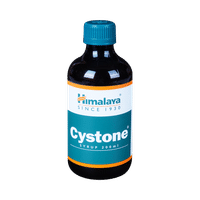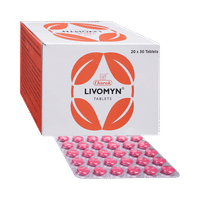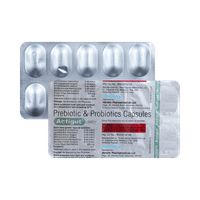Tamsulin T 0.4mg/4mg Capsule

food interaction for Tamsulin T
alcohol interaction for Tamsulin T
pregnancy interaction for Tamsulin T
lactation interaction for Tamsulin T
food
alcohol
pregnancy
lactation
Tamsulin T 0.4mg/4mg Capsule is to be taken with food.
None
None
CAUTION
Tamsulin T 0.4mg/4mg Capsule may cause excessive drowsiness with alcohol.
UNSAFE
Information regarding the use of Tamsulin T 0.4mg/4mg Capsule during pregnancy is not available. Please consult your doctor.
CONSULT YOUR DOCTOR
Information regarding the use of Tamsulin T 0.4mg/4mg Capsule during breastfeeding is not available. Please consult your doctor.
CONSULT YOUR DOCTOR
SALT INFORMATION FOR Tamsulin T
Tamsulosin(0.4mg)
Uses
Tamsulosin is used to improve urination in men with enlarged prostate (benign prostatic hyperplasia).
.How it works
Tamsulosin is an alpha blocker. It works by relaxing the muscles around the bladder exit and prostate gland so urine is passed more easily. This helps empty the bladder completely and reduces the need to pass urine frequently or urgently in BPH.
Common side effects
Dizziness, Ejaculation disorder, Headache, Decreased libido, Nausea, Infection, Orthostatic hypotension (sudden lowering of blood pressure on standing), Abdominal pain, Vertigo, General discomfort, Drowsiness, Abnormal vision, Tachycardia, Palpitations, Fainting, Priapism, Red spots or bumps, Drug eruptions, Stevens-Johnson syndrome
Tolterodine(4mg)
Uses
Tolterodine is used in the treatment of Overactive bladder (OAB) symptoms. OAB is a collection of urinary symptoms, including frequent urination, urgent need to urinate, and inability to control urination.
How it works
Tolterodine is an antimuscarinic. It works by relaxing muscles of the urinary bladder and prevents frequent, urgent or uncontrolled urination.
Common side effects
Dryness in mouth, Constipation, Headache, Dizziness, Blurred vision, Urinary retention, Chest pain, Dry eye, Fatigue, Urinary tract infection, Influenza, Weight gain, Joint pain, Pharyngitis, Cough, Prolonged QT interval, Lower limb edema, Depression
SUBSTITUTES FOR Tamsulin T
3 Substitutes
3 Substitutes
Sorted By
 Rs. 394.50pay 111% more per Capsule
Rs. 394.50pay 111% more per Capsule Rs. 186.42save 1% more per Capsule
Rs. 186.42save 1% more per Capsule Rs. 225pay 18% more per Capsule
Rs. 225pay 18% more per Capsule
Expert advice FOR Tamsulin T
- Tamsulosin helps in relieving the symptoms of enlarged prostate. It does not decrease the size of the prostate.
- Tamsulosin must be taken with food.
- You will feel better within hours or days of starting the treatment. Full effect is usually seen within 2 weeks.
- Tamsulosin may cause dizziness or sleepiness. Do not drive or do anything requiring concentration until you know how it affects you.
- If you are scheduled to undergo an eye surgery due to cataract or glaucoma, inform your eye doctor about the usage of Tamsulosin.
- Inform your doctor if you have ever been diagnosed with kidney or liver problems.
Frequently asked questions FOR Tamsulin T
Tamsulosin
Q. What is the best time to take Tamsulosin?
You can take the capsule after breakfast or after the first meal of the day. However, some doctors prefer it to be taken at night time after dinner. You should take it approximately 30 minutes following the same meal every day. Swallow it as a whole with a glass of water. Do not open, crush or chew the medicine.
Q. Can the use of Tamsulosin increase blood sugar levels?
Use of Tamsulosin does not increase your blood sugar levels. If you notice any change in the blood sugar levels while taking it, consult your doctor as this could be due to some condition which needs attention.
Q. Does Tamsulosin cause weight gain?
No, Tamsulosin does not usually cause any increase in the weight, even on long-term use. If you experience any weight gain while taking the medication, then consult your doctor to identify the cause of the weight gain.
Tolterodine
Q. How long does it take for Tolterodine to show its effect?
Your symptoms may start improving within 1 week of starting Tolterodine. Maximum benefits may be seen after 5-8 weeks of treatment. To maintain this improvement, your doctor may prescribe this medicine to you for a long term of up to 24 months.
Q. What class of drug is Tolterodine? Is it a diuretic?
Tolterodine belongs to a class of medicines known as muscarinic receptor blockers. Tolterodine is not a diuretic, it is a urinary antispasmodic. This means that it relaxes the urinary bladder, decreasing spasm of the bladder wall. This further provides better control upon the release of urine and also increases storage volume of the bladder.
Q. Can I just stop taking Tolterodine?
Tolterodine does not cure your condition but helps to control the symptoms of overactive bladder. Do not stop taking this medicine even if you feel better. Your doctor will reassess your condition at regular intervals, like 6 months, to understand the duration for which you need to take Tolterodine.






















